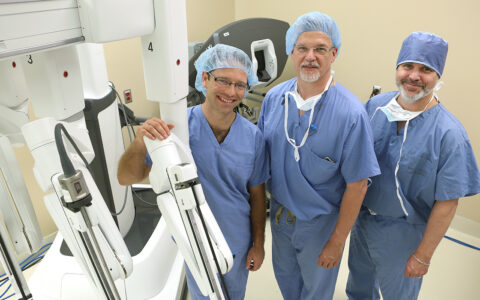Treatments for advanced prostate cancer are evolving faster than ever, following a series of high-profile clinical trials. Results across five studies place patient factors in the center of management decisions.
“A patient’s volume of disease, overall health status, age, and comorbidities play a critical role in treatment choice for prostate cancer, so it is important we look at those factors,” said Kelvin Alexander Moses, M.D., urologist at Vanderbilt University Medical Center.
Moses recently outlined the latest developments in an OncLive® feature. He says recent trials highlight the need for a personalized approach to renal cell carcinoma (RCC) treatment decisions as well.
Considering Patient Populations
Moses emphasizes the importance of understanding a patient’s status when interpreting trial results. “In studies like the CHAARTED trial, men with high-volume disease derived the greatest benefit,” he said. The CHAARTED trial compared chemotherapy plus androgen-deprivation therapy to androgen-deprivation therapy alone in men with metastatic prostate cancer.
“Other trials, such as LATITUDE and STAMPEDE, looked at abiraterone acetate along with prednisone in metastatic hormone-sensitive prostate cancer. Again, there was an improvement in overall survival, and no difference was noted as far as volume of disease goes,” Moses said. “The STAMPEDE trial was somewhat a heterogeneous group, but the men with metastatic disease did have a survival benefit.”
Surgery or Systemic Therapy
Other studies call for personalized approaches in treating renal cancer. Cytoreductive nephrectomy has long been part of the treatment paradigm for appropriately selected patients with metastatic kidney cancer. The surgery reduces tumor burden but comes with potential morbidity and mortality.
Results from two recent trials examining outcomes with cytoreductive nephrectomy versus systemic therapy alone or initially now place into question whether the surgery is appropriate for all patients.
“For a long time, the topic of cytoreductive nephrectomy was thought to be fixed in stone,” Moses said. “Now, investigators want to see if its associated survival benefit still exists in this era of targeted therapy, tyrosine kinase inhibitors and checkpoint inhibitors.” Studies suggest such systemic therapies might offer similar benefits – for specific patient populations.
“For a long time, the topic of cytoreductive nephrectomy was thought to be fixed in stone. Now, investigators want to see if its associated survival benefit still exists in this era of targeted therapy.”
The CARMENA trial compared cytoreductive nephrectomy followed by single-agent sunitinib, to sunitinib therapy alone. Across 450 patients with confirmed metastatic clear-cell RCC, the investigators found no significant differences in response rate or progression-free survival.
Surgery timing is a major factor – the SURTIME trial found deferring cytoreductive nephrectomy until after a period of sunitinib therapy more than doubled overall survival to 32.4 months.
Personalized Medicine
While the trial results may support systemic therapy to treat RCC, Moses carefully integrates the approaches into personalized regimens that may still include cytoreductive nephrectomy.
“Patients who have a larger metastatic burden are more likely to be treated systemically first,” he said. “If they have a response or disease regression, and the primary site is now the greatest burden of disease and the patient has done well otherwise, I will consider a cytoreductive nephrectomy.” When it is a tumor’s size or thrombus causing symptoms, Moses says he may elect for upfront surgery, knowing systemic therapy will follow.
Adjuvant trials and larger trials across the RCC disease spectrum will offer additional clarity, Moses said. “Some of these trials did not meet their accrual goals, and a significant portion of the patients enrolled were poor-risk. Could good- or intermediate-risk patients benefit from cytoreductive nephrectomy? That still needs to be teased out.”





